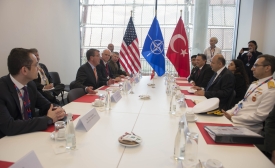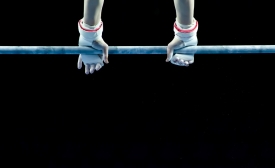russia
OSSSO Fusion Musical Experience "Sound of the Nature" - a special Asia - Europe music experience with the unique combination of folk music, light music and symphonic music was first performed abroad in the cultural exchange festival of Vietnam from July 11th 2016 to July 15th 2016 at the cultural capital Saint Petersburg, Russia, which brought the cultural pride of Vietnam to the Russian music lovers.
Soft power – broadly a country’s ability to persuade other nations to cooperate without recourse to force – has long been a tool of Western foreign policy, but in recent years Russia’s President Vladimir Putin has introduced his own much less benign variant of the initiative.
On July 8-9, 2016, some of the world’s most powerful heads of state, as well as their foreign and defense ministers, gathered in Warsaw for the NATO Summit. NATO summits, convened every year or two, represent important public diplomacy opportunities for the Alliance. During these summits, NATO nations and partners meet in order to produce a communiqué, which outlines the Alliance’s priorities and initiatives.

Stefanie von Hlatky on NATO's current messaging and target audiences.

Anna Velikaya's take on Russia's athletic diplomacy.
The new Russian, or more precisely, the pro-Russian think tank entitled 'Dialogue of Civilizations', associated with the global public forum of the same name with the headquarters in Vienna, was launched in Berlin. The structure will be led by the former head of Russian Railways, Vladimir Yakunin, [...] The head of the Program for Eastern Europe at the German Council on Foreign Relations, Stefan Meister, suggested that in many ways the success of the new Institute will be identified by the fact whether it will be able to attract the influential German scientists and political experts.
Moscow’s V-A-C Foundation—owned by Leonid Mikhelson, recently named Russia’s wealthiest man—will open a four-story exhibition space and artist residency at the Palazzo delle Zattere in Dorsoduro during the Venice Biennale vernissage. This will not, however, be an outpost devoted to the display of Russian art. [...] the V-A-C space will be defined by the opportunities it offers for collaborative production of new exhibitions and new work—by artists, curators, and visitors from across the geopolitical divides of the world.
Past responses of the U.S. government to these frozen conflicts have centered on non-recognition policy, foreign aid, people-to-people diplomacy, establishment of international forums and sanctions. In the framework of its policy of "engagement without recognition" in Georgia's and Azerbaijan's separatist territories, Washington has pursued public diplomacy and people-to-people initiatives to counter their isolation.







